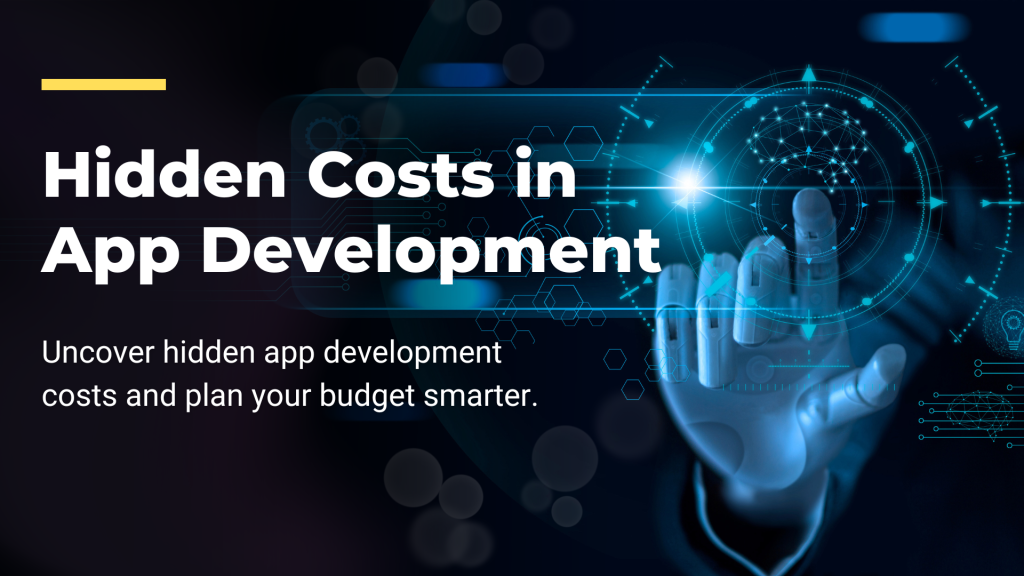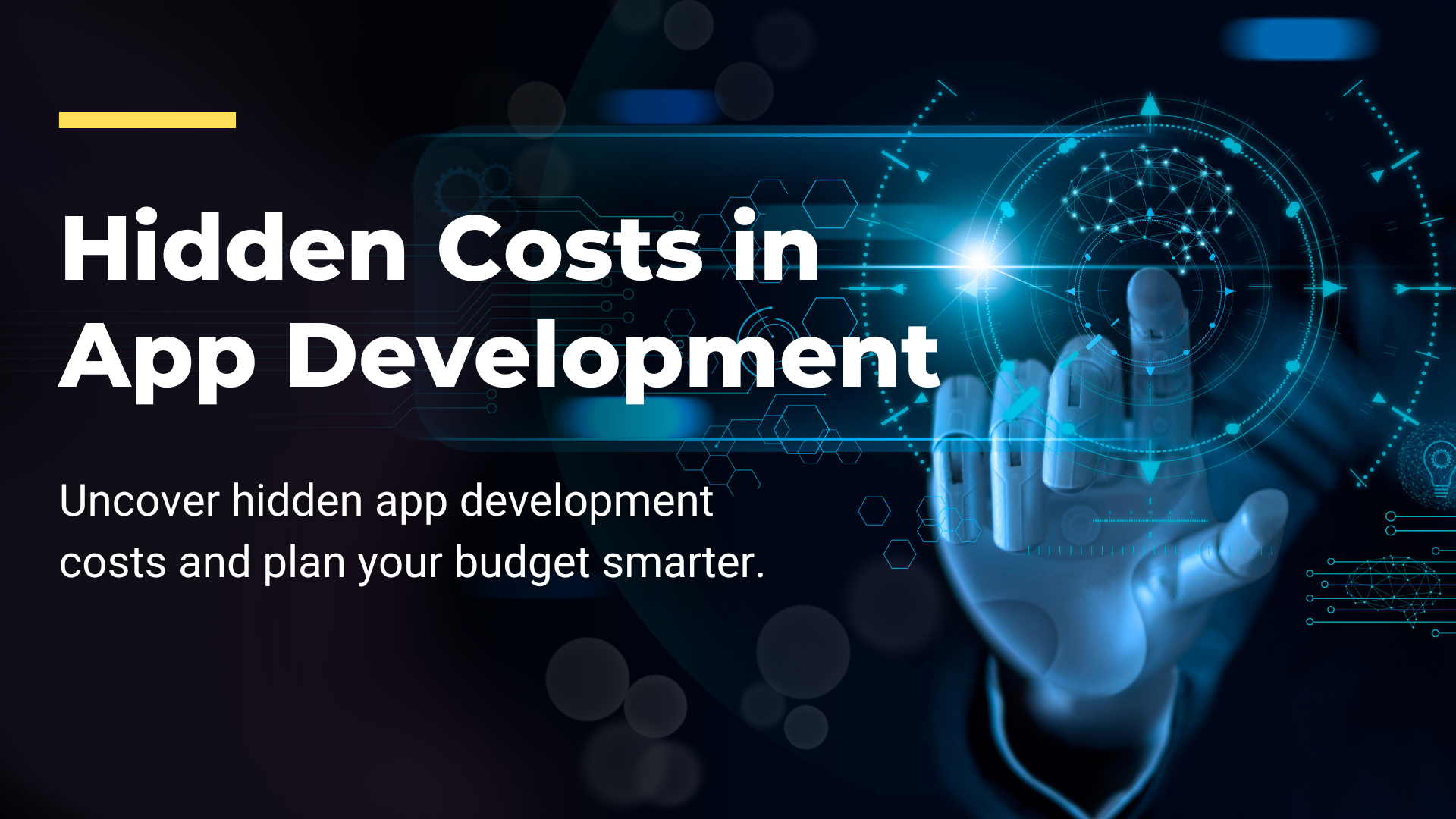Hidden Costs in App Development: A Comprehensive Breakdown

Developing a mobile application involves more than just coding and UI/UX design. Many businesses focus primarily on upfront expenses while overlooking hidden costs that can significantly impact the overall budget. From pre-development planning to post-launch maintenance, these costs can accumulate if not properly accounted for.
This guide explores the often-overlooked expenses in app development and how to budget effectively to avoid unexpected financial strain.
1. Pre-Development Costs
Before writing a single line of code, businesses must invest in research, legal compliance, and prototyping:
- Market Research & Analysis: Conducting competitor analysis and user behavior studies ($5,000 – $25,000).
- App Prototyping & Wireframing: Developing UI/UX wireframes and interactive prototypes ($1,000 – $10,000).
- Legal & Compliance Fees: Ensuring adherence to data privacy laws like GDPR ($2,000 – $15,000).
2. Development & Technology Costs
Beyond core development, several technical expenses arise:
- Third-Party API Integrations: Payment gateways, geolocation services, and analytics tools ($2,000 – $20,000).
- Scalability & Performance Optimization: Ensuring the app handles high traffic effectively (adds 15–30% to development costs).
- Cross-Platform Compatibility: Expanding beyond a single platform increases costs by 30–50%.
3. Testing & Quality Assurance (QA)
Comprehensive testing is essential to ensure a stable and secure application:
- Automated & Manual Testing: Identifying and resolving bugs ($5,000 – $50,000).
- Security Testing: Protecting against vulnerabilities ($2,000 – $20,000).
- Performance Testing: Ensuring seamless user experience under varying conditions ($3,000 – $15,000).
4. Deployment & App Store Costs
Launching an app requires additional investments:
- App Store Fees: Google Play ($25 one-time) and Apple App Store ($99 annually).
- App Store Optimization (ASO): Improving visibility and ranking ($500 – $5,000 per month).
- Beta Testing & Soft Launch: Testing with real users before full release ($3,000 – $20,000).
5. Post-Launch Maintenance & Updates
Sustaining an app after launch requires continuous improvements:
- Bug Fixes & Performance Updates: Regular optimization ($5,000 – $50,000 per year).
- OS & Device Updates: Compatibility with new iOS and Android versions ($3,000 – $20,000 per update).
- Feature Enhancements: Iterative development adds 15–40% of the original cost annually.
6. Marketing & User Acquisition Costs
Even a well-developed app requires strategic marketing to gain users:
- Paid Advertising (PPC, Social Media Ads): Costs range from $1,000 to $100,000+ per month.
- App Store Promotions & Influencer Marketing: Additional $5,000 – $50,000.
- Content Marketing & SEO: Creating blogs, videos, and promotional content ($1,500 – $10,000 per month).
7. Data Storage & Server Costs
As an app scales, infrastructure expenses grow:
- Cloud Hosting (AWS, Google Cloud, Azure): Monthly costs start at $100 but can exceed $10,000.
- Data Security & Compliance: Meeting regulatory requirements ($2,000 – $20,000).
- Backup & Disaster Recovery: Secure data storage solutions ($1,000 – $5,000 per year).
8. Customer Support & User Retention
Long-term success depends on providing excellent user support:
- In-App Chat Support & AI Chatbots: Implementation costs range from $2,000 – $25,000.
- Customer Support Team: Hiring dedicated support staff ($20,000 – $100,000 per year).
- User Feedback & Engagement: Conducting surveys and usability tests ($1,000 – $10,000).
Conclusion
A well-planned budget is critical for the success of any app development project. By accounting for hidden costs—from research and compliance to post-launch maintenance—businesses can avoid financial surprises and ensure long-term sustainability.
Looking for cost-effective and scalable app development solutions? Contact TechCoders today for expert guidance!
